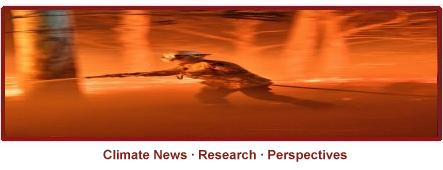
About Barry Smiler

There is information about this site on the Home page. But I suppose since you're here you want to know something about me.
··· --- ···
I'm originally from Philadelphia, spent most of my life in California, was in the Baltimore area for eight years, and now live in the Netherlands. I also lived briefly in Florida. I have eleven fingernails.
··· --- ···
I've attended art school, merchant seaman school, and the University of California, where I began pre-declared as a physics major but graduated with a degree in the then-new discipline of computer science. Also most of another degree in biology, as I've always been interested in the interaction between the so-called hard sciences and the equally so-called life sciences. When asked to describe myself in one word I call myself an engineer.
··· --- ···
After college I worked at the Lawrence Berkeley National Laboratory in what was then called the Energy & Environment division (now called the Earth & Environmental Sciences division). I have been concerned about climate change ever since. That job ended in 1982 when the new Reagan administration gutted any and all Carter administration initiatives related to the environment, including much of E&E at LBL. I have little doubt that today's climate crisis would be very different if that hadn't happened. Carter was an engineer, and we engineers believe in facts.
··· --- ···
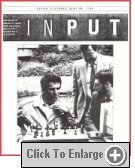
Following that I worked with econometric models, wrote chess software for Garry Kasparov, was a senior research analyst at Bank of America, and launched Bardon Data Systems, a technology company where I served as CEO for many years. Currently I am a partner in Droedlepark, a Dutch consulting firm.
··· --- ···
I was born shortly after Eisenhower became president and, for much of my childhood, "president" and "Eisenhower" were synonyms. I was very confused when Kennedy was elected. How can this other man be president? Eisenhower is the president!
··· --- ···

In addition to my technology work, for a while I had a parallel career as a performing musician and dancer, and recorded an album that I still think came out well. (Listen online on Bandcamp or YouTube, or click here to download a copy.) I wrote about music too, for example here and here for Folkworks in Los Angeles.
··· --- ···
I also had another parallel career for many years as a concert producer, notably with Julie's Place in Berkeley but also before and after that; I produced my first music festival while I was in high school. Event production is just entrepreneurship by another name.
··· --- ···
In December 1972 on two days notice I hitchhiked a thousand miles to Florida to watch the last Apollo Saturn V moon rocket take off. Saturn V was the biggest rocket ever built, and this was the first and only night launch. Even from the beach ten miles away it made the night into day, really day, with a real blue sky with light coming from all over the way it does in the day. The noise was way past deafening. It was ten miles away and nobody could hear themselves or anything else, nothing except the roar of this monster. Hear it and feel it, the ground shook, the air shook, our eyeballs shook. It was truly awesome, in the original sense of real honest to goodness awe. The world will never see such a thing again.
··· --- ···
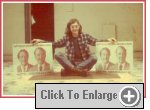
I was on the paid staff of two presidential campaigns, McGovern in 1972 and Clinton in 1992. McGovern because I believed in what he was saying, and Clinton because he wasn't George Bush. Though having said that, getting to meet Al Gore was a real treat. Smart, knowledgeable, caring, a very decent person.
··· --- ···

In 1973 I began working as a merchant seaman and was able to travel the world and meet many interesting people. I was forced to stop when industry changes made it difficult to find work. That's when I settled in California, and lived in the Berkeley/Oakland area for decades.
··· --- ···
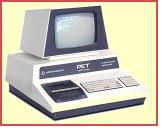
In 1977 I sold the second Personal Computer in the world from a store over the counter. This was the Commodore PET, the world's first PC. I was the assistant manager of Commodore's "Mr. Calculator" store in Berkeley, the first place Commodore sold their new PET over the counter. The store's manager sold the first unit; I sold the second. What a ride that was! Chuck Peddle's PET design was brilliant but Jack Tramiel, head of Commodore and notorious micromanager, had no idea how to market it. He thought he could sell computers like toasters (or calculators, which had previously been the store's purpose in life). Commodore gave us zero support so at the store we did it ourselves as best we could, spending nights and weekends reverse-engineering the PET so we could answer customer questions. This couldn't last, and it didn't. With no notice Tramiel stopped paying PET sales commissions. He thought, why am I paying commissions to sell toasters? After trying to negotiate and getting nowhere, virtually all the staff in the entire chain quit. We in California filed complaints with the state Labor Commission, which awarded us all a nice settlement. Ours was hardly the only Tramiel misstep and he lasted only a few more years at Commodore.
··· --- ···
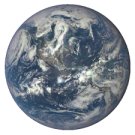
California in those days was bursting with ideas in many other fields as well, and I participated in some of those arenas. Certainly, my work in technology, activism, the arts, and emerging communities was rewarding. But even more rewarding was the privilege I had to be both a witness and a participant in this remarkable era. As time passed, though, I saw the values that I had learned to appreciate in those days start to fade from the world, and a more distressingly transactional mode become dominant. So, beginning about 2000 I looked deeply into a number of nontraditional approaches to living and relationships for insights into how people might interact less selfishly. I felt that encouraging a wider sense of "us" was the only way to address large problems - including climate change, the largest problem humanity has ever faced. Sadly, my research was not fruitful. I did find value in some elements of these for addressing person-to-person situations, but nothing that might be broadly applicable to those large problems. However, distressingly often I found that the organizations promoting such approaches were less interested in offering insights than in taking peoples' money to fund their clique (or sometimes, cult). Yes, everybody needs to earn a living. But preying on weak and lost and confused people is for me a bridge too far.
··· --- ···
Enough for now. I'll add more here as time allows.
"It is difficult to get a man to understand something, when his salary depends on his not understanding it." (Upton Sinclair)
However, "The good thing about science is that it's true whether or not you believe in it." (Neil deGrasse Tyson)Except where otherwise noted, content on this site is © Barry Smiler and is licensed under
Creative Commons Attribution-NonCommercial 4.0 International (CC BY-NC 4.0)